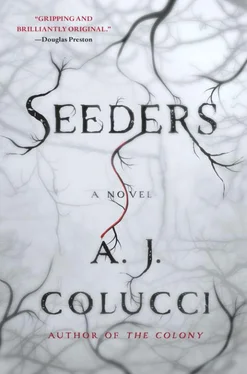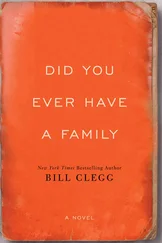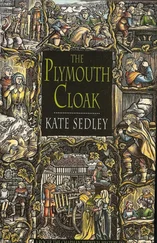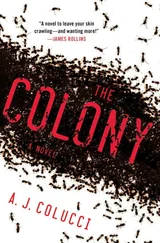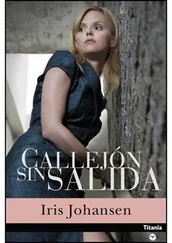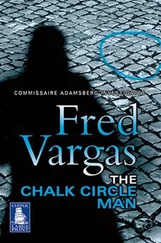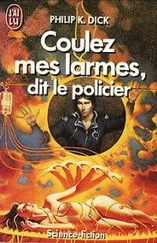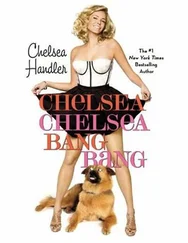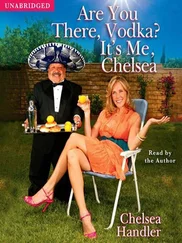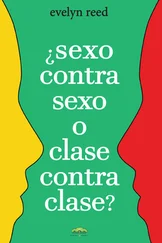“Creepy. But smart creepy.”
“You see, plants have a system of tracking and signaling that’s just as effective as our own. They can use all five senses without the almighty nervous system.”
Luke nodded. “I see what you’re saying. I think it’s really cool.”
“I think so too.”
It seemed the boy was satisfied with the conversation and Jules was relieved. But after a long moment Luke scrunched up his face, hard in thought.
“There’s still one problem with your theory,” he said.
“What’s that?”
“I get what you mean about similar electrical signals in plants and animals, but I don’t think a bunch of neural correlates can explain Beethoven. I mean, when a person listens to music, you can track signals to specific areas in the brain to create sound, but what about the feeling you get listening to a song? How do you explain the excitement of a roller coaster or being awed by fireworks?”
“That’s very perceptive of you, Luke. You’ve struck on the one question that we’ve not been able to solve. These are sentient experiences called qualia: the pain of a headache, the taste of wine, the redness of the color red, all of our emotions. Neurobiologists call it the hard problem, and so far it’s been unanswerable.”
“Because it’s part of something greater than we can imagine.”
“Exactly. Our brains haven’t evolved enough to comprehend an answer. Just as we can’t understand gravity or imagine a ninth dimension or know what comes after infinity. It’s the same with plants. We haven’t evolved enough to truly understand our own consciousness, so how can we claim to understand theirs?”
“Or maybe it can only be explained by God.”
Jules chuckled. “Now you sound like your grandfather.” He took another drink from his glass, emptied it, and placed it on the envelope.
“You think we’ll ever figure out how to communicate with plants?”
“We might not have to. Plants have a seven hundred million year advantage over humans. Perhaps they’ll find a way to reach us first.”
“Maybe.” Luke stood up to leave. “Hey, thanks, Dr. Beecher.”
“You are most welcome, Luke. You’re a bright boy. Everyone should be as open to new ideas as you are.”
ISABELLE AGREED TO DEVOTE the entire afternoon to finding the diamond. She and Ginny rummaged through dozens of boxes in the attic, and then Isabelle headed downstairs to search.
There were six rooms on the ground floor. Isabelle stood at the bottom of the staircase, hands on hips, wondering where to start. She decided on the storage room and got on with it right away, opening boxes of items her mother brought from England, most of which had no business on the island: skis and tennis equipment, formal dresses and gowns, dozens of high-heeled shoes. There were pieces of artwork scattered around the room, a naked mannequin and a few paintings leaning against the walls.
Isabelle picked up one of the paintings and held it to the light with a frown. It was a portrait of her mother, Grace, as a stunning young woman in her early twenties who could have passed for Audrey Hepburn. She was a petite brunette with a heart-shaped face and large brown eyes under perfectly shaped eyebrows. But it was her expression that gave Isabelle a chill. It was stiff, as though she were sitting on something sharp. Perhaps, Isabelle thought, she was already feeling the nonexistent pain of so many false illnesses.
Isabelle stared at the portrait in contemplation. Living on Sparrow Island they had never been close, she and Grace, but when they arrived in New York City everything changed. Isabelle became her confidante, her best friend, and eventually her nurse. Grace seemed to be deathly ill all the time, but never once was admitted to a hospital. Doctors would throw out their hands and tell her to hire a nurse. She never did, insisting Isabelle could easily care for her.
By sixteen, Isabelle had barely seen the light of day, spending long hours cooking and cleaning, researching homeopathic remedies, providing physical therapy. She’d drag her mother’s heavy body from one room to another and back again. Young Isabelle would stare out the bars of her window, dreaming about the jungles of Africa, the pyramids of Egypt, the islands of the Pacific. She wanted to see the whole world. But Grace was constantly bedridden with migraines, E. coli , lupus, toxic shock syndrome. She had three types of cancer and a bout with meningitis. How ironic that she died from choking on a cough drop.
Isabelle didn’t realize she was holding her breath until her lungs started to ache. She laid the portrait aside and went to the kitchen. She made a pot of tea, placed it with the matching tea set, and brought it into the library.
The room was full of tall bookshelves stocked with hundreds of books. Almost immediately, and to her surprise, she spotted a Bible. Perhaps it was The Book mentioned in the riddle. It looked old and worn as she pulled it from the shelf. She practically tore it apart, looking for secret pockets, scribbled notes, or circled words.
Isabelle paused. Someone had underlined a passage from the first page of Genesis:
The Lord God took the man and put him in the Garden of Eden to till it and keep it. And the Lord God commanded the man, “You may freely eat of every tree of the garden; but of the tree of knowledge of good and evil you shall not eat, for in the day that you eat of it you shall die.”
Isabelle’s heart kicked up when she read the word Eden, thinking of her father’s green journal. Perhaps The Eden Project held a clue to the diamond’s location. She read the passage again. Could there be a tree of knowledge on the island? She tried to remember if there was a specific species associated with the tree.
“Oh damn,” she whispered, and closed the book. It was a Bible, for heaven’s sake. The whole idea of the riddle was starting to seem calculated and melodramatic. What was she doing wasting so much time, instead of enjoying her vacation? She wondered if the children were having any fun. Sean was in the library too, gazing out the window with unfocused eyes, body rigid as a statue. No, he didn’t look any happier here than at home.
Without warning, he banged his palms against the glass, grunting at something in the distance.
Isabelle followed his gaze to the woods, but saw nothing.
“Ung!” Sean pointed a finger to himself, and then the window.
“You can’t go out right now. We’ll go for a walk later.”
He banged his chest.
“No, you can’t go alone.”
His brow furrowed and he hissed.
“What’s gotten into you? Why are you so upset?”
Sean pressed his open palms high on the windowpane and bumped his forehead against the glass, whimpering.
“Why don’t you check out the garden in back of the house? There are wildflowers just starting to blossom. You can pick them for the dinner table.”
He left with a scowl, and Isabelle listened until the kitchen door slammed and the house was quiet once again.
The silence was broken by sounds of heavy lifting down the staircase. Ginny carried a large box into the library and dropped it on the sofa, creating a frenzy of dust. “This is everything I could find upstairs that might have the slightest value.” She removed a gaudy necklace of bright wooden beads, a chrome-plated picture frame, an ancient calculator, and a fur hat.
Isabelle blinked.
“I know what you’re thinking, dear. The estate belongs to you. Therefore, all these trinkets are yours.”
“No, it’s just—”
“That’s exactly why I brought them downstairs, instead of pocketing them like a common thief. You can decide what you want, and I’ll take the rest. We can appraise their value together. I believe I saw some china and silver items in the pantry. Of course some of these books in the library are first editions and will bring in a pretty penny. Now, don’t look at me like that, dear. Your father would want us to put these things to use and sell the rest. He was quite practical.”
Читать дальше
